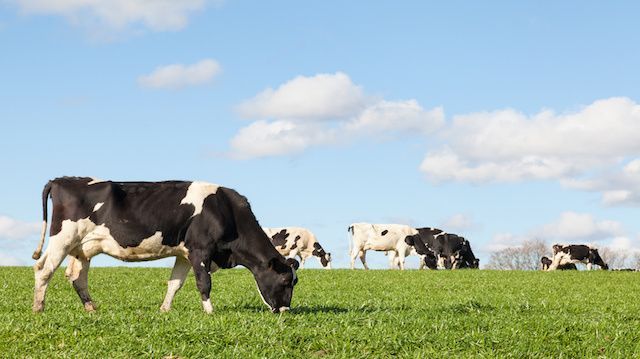
You’re concerned about all of your food sources, so why is milk different? You can get to know the source of your milk up close and personal when you buy shares in a dairy cow. Whether you’re a raw-milk devotee or want to know exactly what the cow is consuming, buying a dairy cow share is one way to go.
Raw milk
In many states and Canada, it is illegal for farmers to sell raw milk or raw-milk products. Farmers caught doing so face prosecution. However, in some jurisdictions it is legal for anyone owning a cow or goat to drink or use that animal’s milk raw. Thus was born dairy-cow shares. Yes, it is a way of skirting the law, but people who own shares in that dairy cow have the right to use the milk as they see fit. As of the time of publication, only five states allow raw milk to be obtained through herd share agreements. These are:
- Alaska
- Colorado
- Ohio
- Tennessee
- Wyoming
Twelve states allow the sale of raw milk in retail stores, and Utah permits such sales if the store owner is also the milk producer. Seventeen states permit the sale of raw milk directly from the farm. Sixteen states do not allow the sale of raw milk for human consumption in any form. These are:
- Alabama
- Delaware
- Florida
- Georgia
- Hawaii
- Indiana
- Iowa
- Louisiana
- Maryland
- Michigan
- Montana
- New Jersey
- North Carolina
- North Dakota
- Virginia
- West Virginia
Pasteurized milk
Cow sharing isn’t necessarily limited to raw-milk advocates. You may want to ensure that the milk you purchase is free from antibiotics and that the cows live only on pasture or receive solely organic feed, and that only natural, eco-friendly pesticides are used on the animals. This is the way you would keep a cow if you had the opportunity.
Cow boarding
When you purchase a share in a dairy cow, you generally pay an upfront fee and then monthly expenses proportionate to your ownership shares. It’s not dissimilar from horse boarding in that the board includes feed, cleaning and labor costs. Of course, since you’re purchasing a share in the cow with several other buyers, monthly costs are relatively low. However, expect to pay more than you would in comparison to buying milk off the shelf in the supermarket. The premium is worth the health benefits.
How it works
Cooperatives run by their own specific regulations, but each share provides you with a set number of gallons of milk per week. You will likely receive more milk in the spring and summer and less in the winter months. Most families won’t need more than one share, and singles or couples should find a half-share sufficient.
Use it or lose it
If you’re not sure you or your family will use a fair amount of milk weekly, think twice about buying dairy shares. Since milk has a short shelf life, if you don’t pick up your quota by a specific date, the farmer may give the milk to another share owner or use it to produce cheese or butter. Otherwise, the milk would just go to waste, and that is in no one’s interests. In other words, be prepared to use it or lose it.
Helping local farmers
When you purchase dairy-cow shares, you are helping local farmers. While that’s also true if you purchase a community-supported agriculture share for fruits and vegetables, dairy farming is just about the toughest type of farming. Because cows require milking on a regular, twice-daily schedule, there are no days off or opportunities to leave the farm without ensuring the next milking session is covered. Milk prices fluctuate constantly, so the conventional commercial dairy farmer may work extremely hard but still lose money. Purchasing dairy shares gives your local dairy farmer a dependable source of income. That, in turn, helps keep farms in production. Most farmers don’t want to sell their land to developers, but they have to make a living.
—Jane Meggitt
Jane Meggitt graduated from New York University and worked as a staff writer for a major New Jersey newspaper chain. Her work on pets, equines and health have appeared in dozens of publications, including The Daily Puppy, The Nest Pets, Horse News, Hoof Beats and Horseback magazines.
Sources:
http://www.realmilk.com/wp-content/uploads/2000/01/CowShareTrifold.pdf
http://www.migreenpastures.com/faq1.html
http://www.ecoreality.org/wiki/Dairy_herd_share_FAQ
http://milk.procon.org/view.resource.php?resourceID=005192#sales-prohibited

